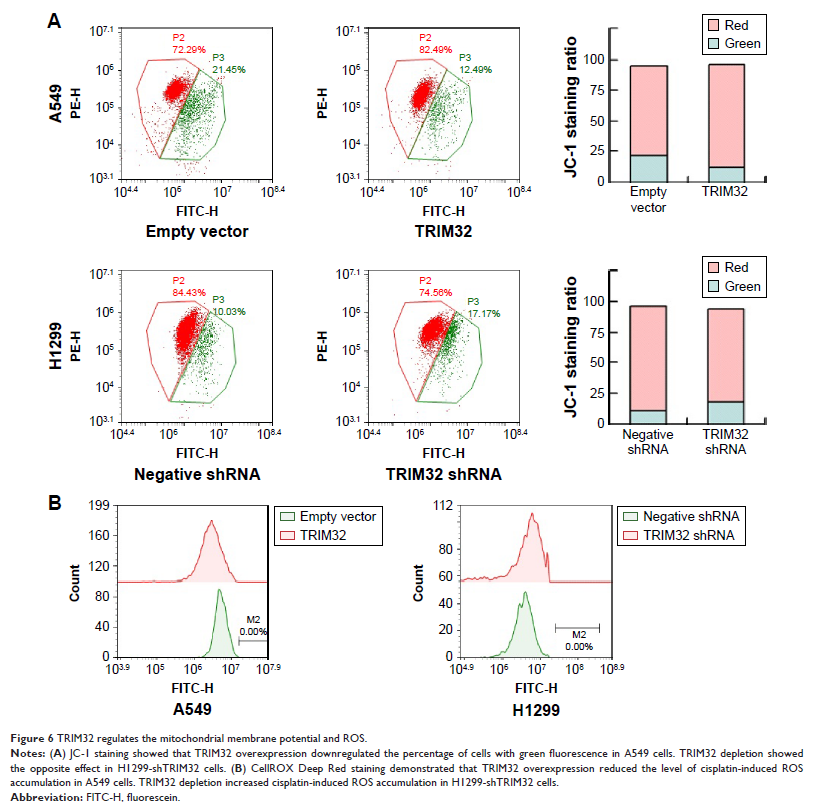108384
论文已发表
注册即可获取德孚的最新动态
IF 收录期刊
- 3.4 Breast Cancer (Dove Med Press)
- 3.2 Clin Epidemiol
- 2.6 Cancer Manag Res
- 2.9 Infect Drug Resist
- 3.7 Clin Interv Aging
- 5.1 Drug Des Dev Ther
- 3.1 Int J Chronic Obstr
- 6.6 Int J Nanomed
- 2.6 Int J Women's Health
- 2.9 Neuropsych Dis Treat
- 2.8 OncoTargets Ther
- 2.0 Patient Prefer Adher
- 2.2 Ther Clin Risk Manag
- 2.5 J Pain Res
- 3.0 Diabet Metab Synd Ob
- 3.2 Psychol Res Behav Ma
- 3.4 Nat Sci Sleep
- 1.8 Pharmgenomics Pers Med
- 2.0 Risk Manag Healthc Policy
- 4.1 J Inflamm Res
- 2.0 Int J Gen Med
- 3.4 J Hepatocell Carcinoma
- 3.0 J Asthma Allergy
- 2.2 Clin Cosmet Investig Dermatol
- 2.4 J Multidiscip Healthc

TRIM32 过表达通过调节非小细胞肺癌中的线粒体功能来改善化疗耐药性
Authors Du Y, Zhang W, Du B, Zang S, Wang X, Mao X, Hu Z
Received 8 June 2018
Accepted for publication 21 August 2018
Published 5 November 2018 Volume 2018:11 Pages 7841—7852
DOI https://doi.org/10.2147/OTT.S176689
Checked for plagiarism Yes
Review by Single-blind
Peer reviewers approved by Dr Colin Mak
Peer reviewer comments 3
Editor who approved publication: Dr Carlos E Vigil
Background: TRIM32 is overexpressed in several human cancers. However, its
expression pattern, biological characteristics and mechanisms in human
non-small cell lung cancer (NSCLC) have not been reported.
Methods: We examined TRIM32 protein in 115 cases of NSCLC specimens. TRIM32
plasmid transfection and siRNA knockdown was carried out in NSCLC cell lines.
AnnexinV/PI and JC-1 staining were performed to examine the change of apoptosis
and mitochondrial membrane potential. Western blot was used to detect change of
downstream proteins.
Results: We found that TRIM32 protein was upregulated in 69 cases and
positively correlated with advanced TNM stage. TRIM32 overexpression also
correlated with poor survival of NSCLC patients. Biological assays demonstrated
that TRIM32 overexpression promoted while it depletion inhibited cell growth,
colony formation and invasion. In addition, TRIM32 maintained NSCLC cell
viability and reduced apoptosis when treated with cisplatin. JC-1 and CellRox
staining demonstrated that TRIM32 could maintain mitochondrial membrane
potential and reduce Reactive Oxygen Species (ROS) production after cisplatin
treatment. Western blot analysis showed that TRIM32 overexpression
downregulated caspase 3 cleavage and cytochrome c release. TRIM32 also
positively regulated Bcl-2 protein expression and NF-κB signaling. Inhibition
of NF-κB abolished the effects of TRIM32 on Bcl-2.
Conclusion: Taken together, our results indicated that TRIM32 is overexpressed
in NSCLC and regulates cisplatin resistance, possibly through NF-κB and Bcl-2.
Keywords: NSCLC, TRIM32, NF-κB, apoptosis
